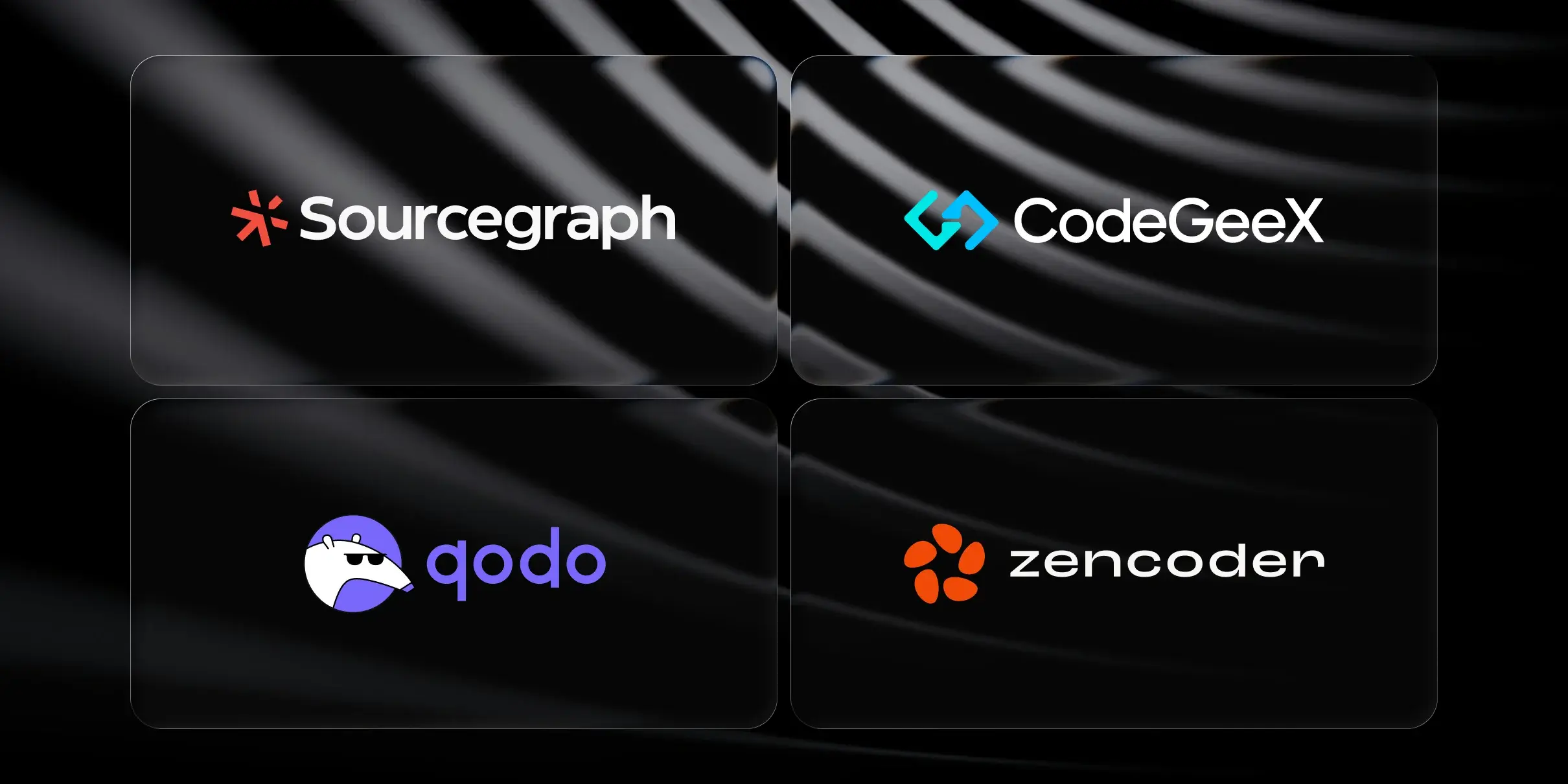What is AI Code Review? A Guide to AI-Powered Analysis
It's late, you've just wrestled a difficult bug into submission, and now it's time for the code review. This critical step can be a bottleneck, but a new approach is changing the game: AI code review. So, what exactly is it?
At its core, AI code review is the use of artificial intelligence to automatically analyze source code for bugs, vulnerabilities, and quality issues. This AI-powered code review process combines the analytical power of machines with the nuanced understanding of human developers to improve software development. These AI tools can analyze code continuously without fatigue, providing consistent and timely feedback that was previously impossible to achieve at scale.
From tedious manual inspections to sophisticated AI code analysis, the journey has been revolutionary. Let's dive into the fascinating realm of AI code review and explore how it's reshaping the landscape of software development.
The Journey from Manual to AI-Driven Code Review
Remember when code reviews meant endless meetings and red-penned printouts? Let's take a quick trip down memory lane:
- Manual Review: The coding equivalent of proofreading "War and Peace" by candlelight. Grueling, but necessary for quality control.
- Early Automated Tools: As codebases grew, the need for efficiency led to automated tools. These were like overeager interns with a checklist—helpful, but about as nuanced as a sledgehammer.
Now, we're witnessing the rise of ai based code review, which promises to combine the speed of automation with the deep insight of human reviewers.
The AI Advantage: Beyond Speed and Consistency
Using ai for code review brings a host of benefits to the table:
- Enhanced Bug Detection: AI models excel at ai code analysis, scanning vast amounts of code to identify potential bugs that might escape human notice. For instance, research mentions that "AI techniques can detect up to 70% of defects in source code."
- Improved Code Quality: AI tools can suggest improvements to make code more efficient and maintainable. They identify patterns and recommend best practices based on extensive analysis of high-quality codebases.
- Continuous Learning: Many AI review tools use machine learning algorithms that improve over time, adapting to project-specific patterns and conventions.
- Security Vulnerability Detection: AI models can be trained to identify potential security risks, helping developers create more secure applications from the outset.
Case Study: Amazon’s Contribution to AI-Driven Code Review
Amazon has been at the forefront of integrating AI into its processes. Their internal tool, CodeGuru, uses machine learning for an AI-powered code review that analyzes code and provides recommendations. In one instance, it identified a performance issue that was causing unnecessary CPU usage. By implementing the suggested fix, Amazon reduced CPU utilization by 325,000 CPU hours per year.
The Human-AI Partnership: A Symbiotic Relationship
While AI brings impressive capabilities, the goal of AI-assisted code review is not to replace human developers. Instead, it's about creating a partnership where each complements the other's strengths. Humans bring creativity, contextual understanding, and the ability to make nuanced judgments that AI currently can't match.
For example, consider this simple code snippet:
def calculate_average(numbers):
total = sum(numbers)
count = len(numbers)
return total / count
An AI tool might suggest optimizing this function for large lists:
from statistics import mean
def calculate_average(numbers):
return mean(numbers)
While the AI suggestion is valid, a human reviewer might consider factors like readability, team conventions, or specific project requirements before deciding to implement the change. This collaborative approach is the essence of effective AI-assisted code review.
Emerging Trends in AI Code Review
- Natural Language Processing (NLP) Integration: AI tools are beginning to understand code comments and documentation, providing more context-aware suggestions.
- Predictive Analysis: Some advanced AI-based code review models can predict potential issues based on historical data and project patterns.
- Cross-Language Support: As development becomes increasingly polyglot, AI tools that can review code across multiple languages are gaining traction.
- AI-Assisted Code Generation: Beyond review, AI is starting to assist in generating code snippets or even entire functions based on high-level descriptions.
Zencoder
Zencoder is revolutionizing the code review AI space with its advanced large language model (LLM) that features context-aware AI agents capable of repairing code across more than 30 programming languages. This comprehensive support ensures that developers can rely on Zencoder for a wide range of projects. Key features include an AI chat for clarifications and a powerful code generation feature, all integrated into tools like Visual Studio Code to enhance productivity.
The Role of Explainable AI in Code Review
Imagine a tool that not only reviews your code but also explains its thought process. That's the magic of Explainable AI (XAI) in AI code review. It demystifies the AI's decision-making process, building a stronger partnership. When AI provides transparent explanations, you can trace every recommendation, validating it against your own knowledge. This certified traceability is essential for debugging and empowers you to make informed decisions, transforming code review into a collaborative, enriching experience.
Implementing AI for Code Review: Best Practices
- Start Small: Begin by implementing AI tools for specific aspects of code review, gradually expanding their use.
- Human-AI Collaboration: Use AI as a first pass to catch obvious issues, followed by human review for more nuanced aspects.
- Customize and Train: Tailor AI tools to your specific coding standards and invest time in training them for your environment.
- Foster a Learning Culture: Encourage developers to learn from AI suggestions rather than seeing them as criticisms.
- Regular Evaluation: Continuously assess the effectiveness of your AI tools and gather feedback from developers.
Popular AI Code Review Tools
Below is a list of popular AI code review tools:
- Zencoder: Pioneers the use of special AI coding agents directly in the developer’s IDE to optimize AI code analysis and prevent context switching.
- Amazon CodeGuru: Offers automated code reviews and performance recommendations for Java and Python applications.
- GitHub Copilot: While primarily an AI pair programmer, it can also assist in code review by suggesting improvements.
- SonarQube: Combines static code analysis with machine learning to detect code smells, bugs, and security vulnerabilities.
- Pullrequest: Offers ai assisted code review as a service, combining automated checks with human expert reviews.
The Impact of AI on Different Development Methodologies
AI-based code review tools can be adapted to various development methodologies:
- Agile and Scrum: AI tools provide rapid feedback, enabling quick iterations.
- DevOps: AI can be integrated into CI/CD pipelines for automated reviews at every stage.
- Waterfall: AI can assist in comprehensive code reviews before moving to the next phase.
- Open Source Development: AI tools help manage contributions from diverse sources, ensuring consistency.
The Economic Impact of AI-Driven Code Review
- Cost Savings: Early bug detection reduces the cost of fixing them by up to 100 times.
- Improved Time-to-Market: Faster reviews accelerate development cycles. Teams using AI code review tools have seen 60% fewer bugs.
- Improved Resource Utilization: AI handles routine checks, freeing up developers for complex tasks.
- Gain Competitive Advantage: Effective use of AI provides an edge in software quality and innovation.
Ethical Considerations and Challenges of AI Code Review
As we integrate code review AI more deeply, several challenges arise:
- Bias in AI Algorithms: AI tools can perpetuate biases from their training data. Regular audits are essential.
- Transparency and Explainability: Developers should be able to understand the rationale behind AI-generated suggestions.
- Data Privacy and Ownership: Clear policies must be established to protect intellectual property.
- Over-reliance on AI: There's a risk of developers becoming too dependent on AI, potentially dulling critical thinking skills.
The Future of Developer Education in the AI Era
So, what do developers need to know in the AI era? Here are some guidelines:
- AI Literacy: Understanding how to work with AI suggestions will become a crucial skill.
- Focus on Higher-Level Skills: Education may shift towards problem-solving, architecture, and creative coding.
- Continuous Learning: The rapid evolution of AI necessitates a culture of continuous learning.
- Ethical AI Usage: Developers will need training in the ethical considerations of using AI.
Conclusion: Embracing the Smart Future of Software Development
It's clear that AI code review is redefining software development. We're entering an era where bugs have fewer places to hide, quality is consistently high, and developers are empowered to innovate. The future is a harmonious blend of artificial intelligence and human insight.
So, are you ready to embrace this AI-augmented future? The tools are here, the potential is enormous, and the code of tomorrow is waiting to be written—and reviewed—with the perfect blend of silicon intelligence and human creativity.

![Spec-Driven Development: Everything You Need to Know [2026]](https://zencoder.ai/hubfs/Cover-Feb-17-2026-08-47-58-1236-PM.webp)

